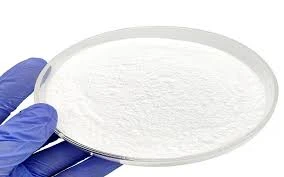Chemicals for Borehole Treatment Ensuring Water Quality and System Integrity
Boreholes are crucial sources of groundwater that supply water for various purposes, including drinking, irrigation, and industrial processes. However, over time, boreholes can become compromised due to sediment buildup, contamination, or microbial growth, leading to reduced water quality and flow rates. To maintain the functionality and safety of boreholes, various chemical treatments are employed. This article explores the different chemicals used for borehole treatment, their applications, and the significance of regular maintenance.
Chemicals for Borehole Treatment Ensuring Water Quality and System Integrity
Another critical aspect of borehole treatment is the control of microbial contamination. Microorganisms, including bacteria and algae, can proliferate within the borehole environment, leading to biofilm formation and degradation of water quality. Chlorine is one of the most commonly used disinfectants in this regard. Its potent antimicrobial properties eliminate harmful pathogens and prevent the regrowth of biofilms, ensuring that the water extracted is safe for consumption. In addition to chlorine, other biocides such as hydrogen peroxide and ozone are also deployed, depending on the specific challenges faced by the borehole.
chemicals for borehole treatment

Additionally, certain chemicals are utilized to rehabilitate and rejuvenate aging boreholes. For instance, sodium hypochlorite can be employed for shock chlorination, a method that helps in disinfecting the borehole by flushing out accumulated contaminants and restoring water quality. This treatment is particularly essential for boreholes with a history of contamination or those that have been inactive for extended periods. Regular rehabilitation not only enhances the water quality but also ensures the structural integrity of the borehole system.
Moreover, chemical treatments can also adjust the water's pH balance, which is crucial for maintaining optimal water quality. The introduction of buffering agents can help neutralize acidic or alkaline conditions that may arise from natural geographical features or pollution. By stabilizing the pH levels, these treatments protect the borehole infrastructure and prevent issues such as corrosion of pipes, which can further compromise the water supply system.
However, it is essential to note that the application of chemicals must be approached with caution. Overuse or improper treatment can lead to adverse effects, including contamination of the groundwater aquifers, harm to aquatic ecosystems, and potential health risks to consumers. Therefore, it is vital to conduct regular testing and monitoring of borehole water quality to inform treatment strategies.
In conclusion, the use of chemicals for borehole treatment is a vital aspect of ensuring the sustainability and safety of groundwater resources. From preventing sediment buildup and microbial contamination to rehabilitating aging systems, these chemical treatments play a crucial role in maintaining water quality. A comprehensive understanding of the chemical processes involved, combined with responsible usage, is essential for preserving borehole integrity and ensuring a reliable water supply for communities. Regular maintenance and monitoring will help mitigate potential risks, making borehole treatment an indispensable practice in water resource management.

